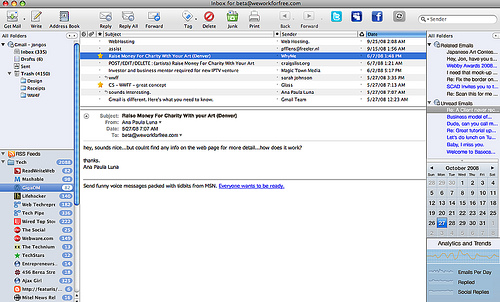- HubPages»
- Health»
- Mental Health»
- Stress Management
Taking a Vacation from Work Emails Reduces Stress

A new study released by UC Irvine and U.S. Army researchers shows taking a vacation from work emails reduces stress. The result of the study indicated those who were cut off from email for 5 days experienced more natural heart rates and less stress.
Less stress and better focus
The employees who took a vacation from work emails were better focused. For the study, participants were computer-dependent civilian employees at the Army's Natick Soldier Systems Center outside of Boston. Each participant was equipped with heart rate monitors and software monitors to determine how often they switched windows and how it affected their heart rate. Employees who read email changed screens twice as often as those who didn't, and their heart rates were measured at a constant "high alert" rate. Those who were removed from email multitasked less and experienced less stress. They reported feeling better able to stay on task and accomplish their jobs. According to Gloria Mark, UCI informatics professor, the study's findings bear out those feelings. "People with email switched windows an average of 37 times per hour. Those without changed screens half as often – about 18 times in an hour."
IBM Study Says Deluge of Work Email Causes Stress
Participants reluctant to give up email
Mark admitted it was difficult to recruit volunteers for the study, and it's no surprise participants were reluctant to give up their email on the front end of the study. Once they did, though Mark reports they were "much happier to interact in person." It gave them the opportunity to get up and walk away from their desk.
The email stress connection
The "high alert" heart rates measured in the participants using email has been linked in other studies to a higher level of a hormone called cortisol, a steroid hormone produced by the adrenal gland which plays a role in stress responses and affects the nervous system, immune system, the metabolism of fats, carbs, and protein and more. This is the reason stress on the job has been linked to several other health problems.
The study group was split evenly between men and women. Those who gave up email reported only one downside. They felt somewhat isolated. However they learned they could gather critical information from their colleagues who did have email and still get the job done.








